I managed to complete the brain-hacking horror game Observer in two sittings live on our Twitch, here’s some thoughts.
Disclosure: Key provided by Aspyr Media.
If you want to see the entire playthrough that I did live on our Twitch channel, you can find Part 1 here and Part 2 here on YouTube.
Observer paints a very bleak future for human kind. After the “NanoPhage” (a digital plague) wiped out thousands and a major war between the East and the West, the world has become pretty dark. The only winner was Chiron, a huge corporation that seized power, with no one left to oppose them. It’s set in 2084 Poland and you are Dan Lazarski, an Observer, someone who literally plugs into the brains of others to gather evidence.
Honestly, I wouldn’t say it was actually all that scary overall. There were a number of moments that made me jump, sure, but overall as a game it wasn’t the type of horror experience I was expecting. If you’re after something to completely terrify you, this probably isn’t it. However, if you go in expecting an adventure game with horror elements then it will probably satisfy you. Most of the horror is psychological, with the use of some fantastic audio work that leaves your mind to wander into the unknown.
Visually, it’s a wet-dream for sci-fi fans. Mixing in retro-futuristic devices that could have been taken out of an 80s film depicting the future, with reality-bending overlays. It’s like if you mixed the technology from the Aliens film and merged it with Virtual Reality interfaces.
It’s a clever story too, with your character’s own fears and memories leaking into the minds he’s currently hacking into. It creates some truly incredible scenes, both disturbing and thought provoking, not to mention confusing.
The game does an excellent job of keeping you on your toes, keeping you guessing and wondering just what the hell is going on. It perfectly blends the lines between what’s real and what’s not. The story is done exceptionally well for the crazy setting they created. Thanks to playing as Lazarski, who gradually starts losing his mind, things get more than just a little weird.
The level design and environments are incredible, it offers up an experience I truly think I’ve not had with any other game. There were moments of sheer panic when the walls around me started crumbling away, when I turned and found everything had changed and with items that phased in and out of existence as I moved around. It’s constantly mesmerizing and elements of it are terrifying, as everything is so constantly unexpected.
I think Rutger Hauer did a fantastic job of portraying Dan Lazarski. His delivery was near-perfect on every line. The sounds he made when you wake up, all confused and delirious after hacking a brain was some fantastic acting. My only complaint is that the voice-over was often a little on the quiet side compared to the rest of the game's audio, so having subtitles on did become a necessity.
One part of the game did annoy me, which was the way you picked dialogue options and interacted with the environment. It was often hard to tell exactly where the mouse pointer was to pick an option. You get what looks like a single white pixel, which was a bit annoying.
I should note, that the game does have two major issues in the Linux version. The mouse often becomes hard to move. I’m unsure if it’s intentional or not, but it seems the mouse behavior is extremely strange. Often it’s as smooth as silk, other times it felt like I was fighting my mouse just to look around.
On top of that, performance wasn’t great. Even on Medium settings, I often saw massive FPS drops, sometimes in really important situations, and it wasn’t pretty when it did that.
It took just short of five hours to finish. To me, the length was pretty perfect, unlike some horror and adventure games that drag on and put padding into everything they can, Observer told exactly what it needed to.
In terms of audio, story and graphics it’s close to a masterpiece in my eyes. Not quite due to quiet dialogue, performance and mouse issues, but close. I enjoyed almost every single moment spent in it. Honestly, I would say it’s the game I’ve enjoyed the most this year so far.
I would really love to see more stories made from this universe—fantastic.
You can find the Linux version of Observer on Steam.
Quoting: jensI'll offer my apologies if I understood that original comment wrongly.Rest assured, you've understood my comment just right. :) No need for apologies.
Quoting: Alm888Rest assured, you've understood my comment just right. :) No need for apologies.That was my assumption too.. though it would be a nice gesture if you would answer my question.
Last edited by jens on 3 Nov 2017 at 12:44 pm UTC
Of course this doesn't apply in Observer's case since Aspyr is the publisher for all versions. Therefore I wouldn't be surprised if we'll see a Linux version on GOG soon.
Quoting: NonjuffoMy take on why Linux versions don't show up on GOG while they do on Steam (e.g. Kotor 2) is that GOG doesn't support the kind of profit sharing based on the OS that Steam does. Steam reports Aspyr (and Feral) as the publisher for the MacOS and Linux versions of the games instead of the original publisher such as 2K or Sega. These "port-publishers" probably receive all the money left after Valve's cut and divide it according to their agreements with the devs/publishers.I find this arrangement to be rather silly, since customers buy all versions at once, so dividing profits per OS is bizarre. But if the likes of Feral and Aspyr want such arrangement, I don't think GOG would have a problem counting downloads per OS for them, or for example user agent OS during purchase as a fallback for cases when someone bought but never downloaded that title. Another fallback would be simply some default split. It wouldn't be any more crude than their arrangement with Steam.
Quoting: ShmerlI find this arrangement to be rather silly, since customers buy all versions at once, so dividing profits per OS is bizarre. But if the likes of Feral and Aspyr want such arrangement, I don't think GOG would have a problem counting downloads per OS for them, or for example user agent OS during purchase as a fallback for cases when someone bought but never downloaded that title. Another fallback would be simply some default split. It wouldn't be any more crude than their arrangement with Steam.Silly or not, that's how it's done on Steam according to what I read here. Maybe publishers don't want to pay for the ports upfront or the porters insist on having a share of the port's profits. I don't know. It is not difficult to track which version was downloaded first, but the legal side of things might be much harder to arrange. Again, I have no clue what kind of deals GOG offers to publishers, but they could be very inflexible with options. People at GOG and publishers might perceive that the legal/accounting/etc. costs are simply not worth it. We are after all talking about a very small potential customer base. I would myself rather buy these games from GOG, but I'm glad that they are at least available on Steam (and the worst DRMs don't work on Linux).
Quoting: jens…it would be a nice gesture if you would answer my question.Yes, it would be. :)
Sorry, this excessive politeness is kinda funny. Now, onto the question itself.
Quoting: jensThen why and on what grounds are you stating in public that the work from Feral or Aspyr is "of outrageous quality"?The reasoning is quite simple. Porters such as Virtual Programming (hello, "The Witcher 2" ), Aspyr (hello, "Observer" ) and Feral (hello, "Tomb Raider 2013" ) generally do ports that:
- are late (sometimes several years after initial release);
- have reduced performance compared to Windows™ originals;
- lack certain graphical features (again, compared to original);
- do not support some hardware (typically AMD or Intel cards) on Linux while Windows™ originals have no problems with that.
I don't know, maybe you are living in the land of happy penguins where nobody is a Windows user or saw performance of the originals, but where I live literally everyone besides me is a rabid Windows user. And YouTube shows the same trend. To counter this we need to persuade these uses Linux is better than Windows™.
Now, if Feral and Co. ported some TBS, of Visual Novels, nobody would notice 40% difference in performance. But they are porting shooters and racing games, the most demanding genres! And they have the audacity (due to the caliber of the titles) to represent Linux gaming in general among less savvy audience and are making Linux basically a laughing stock of gaming!
Don't take me wrong, I'm not against porters. Ethan Lee, Ryan Gordon and other competent porters are heroes: they are reworking game engines, basically tearing them apart and resurrecting from the ashes, making games better than on Windows (see FNA project). We need more "Faster Zombies" from Valve, we need examples of gaming on Linux is better than on Windows. No matter the rationale, we do not need poor "Feral-ports"! Nobody cares whether it is "indirectX", "toGL", "eON" or some other wrapper. If [the game does not support AMD cards, it is not OK](https://www.gamingonlinux.com/articles/cyberpunk-horror-game-observer-releases-for-linux-today-no-amd-support-at-release.10599). If the port [lacks functionality, it is not OK (see the description)](https://www.youtube.com/watch?v=ojKC5kXopCs). If [the performance](https://www.youtube.com/watch?v=md39-TORWhY) [is bad](https://www.youtube.com/watch?v=sCJkC6oJ08A), [it is bad](https://www.youtube.com/watch?v=FgN0Rw78VQg). End of story.
It has nothing to do with Steam, it is about quality. We don't need the constant stream or rushed ports of yesterday's blockbusters. We need examples of Linux superiority.
That is what personally I firmly believe.
That said, I prefer the work of CodeWeavers and Wine developers to the work of Feral and the like. Simply because former work in the FOSS fashion, and because they can gradually improve performance over time, even if it's not the best initially. That's how FOSS projects work - effort is accumulated and usually not lost. Closed wrappers on the other hand are usually one time throwaway thing. Sure, they might revisit their older titles a few times, but that improvement is not likely to persist for a long period.
Plus, FOSS work like Wine, benefits a lot of titles at once, while Feral and eON efforts are not benefiting anything else. As a bonus, Wine tends to work better with AMD and Mesa in general, because of stricter OpenGL compliance.
Last edited by Shmerl on 3 Nov 2017 at 5:25 pm UTC
Quoting: Shmerl…I prefer the work of CodeWeavers and Wine developers to the work of Feral and the like.There is no way I could agree more!!! Now we have 3 competing proprietary "reinvented bicycles" (toGL, indirectX, eON) which sometimes are humiliated by WINE performance being better than "native" ports. The day WINE starts to support DirectX 11 in full will signal the extinction of "ferals".
It's not that useful these days, since it's limited to D3D9.
Last edited by Shmerl on 3 Nov 2017 at 5:37 pm UTC
Quoting: ShmerltoGL is open source for the reference (MIT): https://github.com/ValveSoftware/ToGLOh! Nice. But I agree, nowadays WINE supports D3D9 quite nicely. And… toGL doesn't seem to be in any sort of development.
It's not that useful these days, since it's limited to D3D9.
BTW, does anybody know how Aspyr's wrapper is called?
Quoting: Alm888The day WINE starts to support DirectX 11 in full will signal the extinction of "ferals".Feral ports in theory can have an advantage of translating D3D11 into Vulkan so that can squeeze some more performance. Wine translates it into OpenGL 4.x only. But it's not going to be that much of a difference. See how well it performs in the Witcher 3 for example (with AMD / Mesa).
For D3D12 Wine will naturally use Vulkan already.
By the way, Feral are actually contributing to Mesa itself, so they deserve credit.
Last edited by Shmerl on 3 Nov 2017 at 5:40 pm UTC
Quoting: ShmerlFeral ports in theory can have an advantage of translating D3D11 into Vulkan so that can squeeze some more performance.Well, it seems not everyone has the same mindset.
It is hard to tell for sure, but if that "feral-port" still has to implement and emulate virtual DirectX machine, the only hope for performance boost is to: a) be better on system and I/O levels (Linux vs. NTOSKRNL.EXE competition) and b) hope that this added emulation will be as thin and transparent as possible ("slim" Vulkan instead of "bulky" OpenGL can help with that).
Last edited by Alm888 on 3 Nov 2017 at 5:47 pm UTC
Quoting: Alm888this added emulation will be as thin and transparent as possible ("slim" Vulkan instead of "bulky" OpenGL can help with that).Yep, that's the point. But Wine is doing a good job of translating D3D11 into OpenGL, so I don't think they should spend time on re-doing it in Vulkan, at least not until it's already finished as is.
Last edited by Shmerl on 3 Nov 2017 at 5:52 pm UTC
Quoting: Alm888Thanks for your answer. That's an interesting view, I give you that. It also explains some of your comments.Quoting: jens…it would be a nice gesture if you would answer my question.Yes, it would be. :)
Sorry, this excessive politeness is kinda funny. Now, onto the question itself.
Quoting: jensThen why and on what grounds are you stating in public that the work from Feral or Aspyr is "of outrageous quality"?The reasoning is quite simple. Porters such as Virtual Programming (hello, "The Witcher 2" ), Aspyr (hello, "Observer" ) and Feral (hello, "Tomb Raider 2013" ) generally do ports that:
- are late (sometimes several years after initial release);
- have reduced performance compared to Windows™ originals;
- lack certain graphical features (again, compared to original);
- do not support some hardware (typically AMD or Intel cards) on Linux while Windows™ originals have no problems with that.
I don't know, maybe you are living in the land of happy penguins where nobody is a Windows user or saw performance of the originals, but where I live literally everyone besides me is a rabid Windows user. And YouTube shows the same trend. To counter this we need to persuade these uses Linux is better than Windows™.
Now, if Feral and Co. ported some TBS, of Visual Novels, nobody would notice 40% difference in performance. But they are porting shooters and racing games, the most demanding genres! And they have the audacity (due to the caliber of the titles) to represent Linux gaming in general among less savvy audience and are making Linux basically a laughing stock of gaming!
Don't take me wrong, I'm not against porters. Ethan Lee, Ryan Gordon and other competent porters are heroes: they are reworking game engines, basically tearing them apart and resurrecting from the ashes, making games better than on Windows (see FNA project). We need more "Faster Zombies" from Valve, we need examples of gaming on Linux is better than on Windows. No matter the rationale, we do not need poor "Feral-ports"! Nobody cares whether it is "indirectX", "toGL", "eON" or some other wrapper. If [the game does not support AMD cards, it is not OK](https://www.gamingonlinux.com/articles/cyberpunk-horror-game-observer-releases-for-linux-today-no-amd-support-at-release.10599). If the port [lacks functionality, it is not OK (see the description)](https://www.youtube.com/watch?v=ojKC5kXopCs). If [the performance](https://www.youtube.com/watch?v=md39-TORWhY) [is bad](https://www.youtube.com/watch?v=sCJkC6oJ08A), [it is bad](https://www.youtube.com/watch?v=FgN0Rw78VQg). End of story.
It has nothing to do with Steam, it is about quality. We don't need the constant stream or rushed ports of yesterday's blockbusters. We need examples of Linux superiority.
That is what personally I firmly believe.
That said, I do believe you are making one major mistake in your reasoning. Based on your comments you seem to be convinced that people would switch to Linux because it is technically superior and faster. That applies imho just to the small minority of tech-savy people. I think this is wrong. People will never switch because something is "just better". The mass of people (where unfortunately the most money is) cares only about content. The mass of people don't care that an OS is better and faster, they care that they can read their emails, listening to their music/streaming services, watch their movies/stream videos, open their documents (yes, docx), play their games etc.. That's it. Make this possible and you have a much better chance to attract people than having a few indie game that nobody cares about (I'm exaggerating) that demonstrate that Linux can do faster and is "potentially" better. Don't worry to much about performance. Sure, a game should be very well playable, but being 10% or 30% slower is really just interesting for the top gamers or tech people. Furthermore performance issues will be resolved over time cause of newer hardware. Once you can offer the same content on Linux people are much more willing to switch and also start spending money for games on Linux. When earning money on Linux is possible you will attract the big publishers. That in turn will get Linux earlier on the radar for gaming studios, engine developers etc which should attract even more people. Once Linux has a considerable market share you should see more native games and not just ports. You need Feral, Aspyr and friends to get the train in motion. They do a great job imho considering the difficulties on Linux as a publishing platform. I never had a problem with one of their games, not in terms of performance, not in terms of stability.
About wine, that one is a double-edged sword. I'm using wine for two applications (no games) and I appreciate that it works. That said, contrary to your views I think wine seriously hurts the Linux position for gaming, simply because wine gaming counts as windows gaming and does nothing to increase the number of sold game for Linux. Thus it keeps the status quo and makes sure that Linux will stay as a toy only for tech-savy people but no serious OS on the desktop market.
My view.
Last edited by jens on 3 Nov 2017 at 6:48 pm UTC
Quoting: jensWhen earning money on Linux is possible you will attract the big publishersI wouldn't bet on it. It's already possible to earn money on Linux releases. That doesn't seem to wake most of the legacy publishers up. Their mindset is not something you should evaluate using common sense.
Last edited by Shmerl on 3 Nov 2017 at 6:58 pm UTC
Quoting: jensMy view.Yes, totally valid POV.
I'll just correct some points.
1). I never said that "technical superiority" is the only requirement.
I/m too lazy searching my old posts on the matter, but in a nutshell, we need: a) Linux-oriented education system (yes, firs we need to overcome that "duckling syndrome" ), b) extensive marketing (yes, Linux icon should be right there, at promotional trailers to games at day-1, articles and video at IGN and other video gaming sites, not just some port half a year later at some obscure Linux-oriented site only linuxoids read) and c) quality product (after all, why have all the trouble of switching to Linux when Windows™ can do all the same faster, better and cheaper?).
2).
[quote=jens]…performance issues will be resolved over time cause of newer hardware./quote]
By the time the performance issues will be effectively squashed by availability of more powerfull HW the hype train will be long gone. Do you want to be [that hero of XKCD](https://xkcd.com/606/)? If I were Windows user experimenting on Linux, I'd sure be pissed off. "Just get more powerful hardware" or "just wait X years" are no answers. The typical Windows-Joe does not have GTX 1080Ti, (s)he uses crappy laptop with integrated GPU and wants to play cool games now.
Last edited by Alm888 on 3 Nov 2017 at 7:00 pm UTC
Quoting: ShmerlTheir mindset is not something you should evaluate using common sense.It's actually pretty easy, it's just about making (lots of) money. Really, that's the only motivation. ;)
Last edited by jens on 3 Nov 2017 at 7:05 pm UTC
Quoting: jensNot necessarily. You are again using common sense approach with them. Sure, normal business strives to make money. But legacy publishers are dominated by backwards thinking execs who more often than money covet control. Urge for power can lead them to do things that cost them money, rather than the opposite.Quoting: ShmerlTheir mindset is not something you should evaluate using common sense.It's actually pretty easy, it's just about making (lots of) money. Really, that's the only motivation. ;)
Quoting: Alm888The typical Windows-Joe does not have GTX 1080Ti, (s)he uses crappy laptop with integrated GPU and wants to play cool games now.Yes, this is what I said. The average Joe is happy when the game is playable and enjoyable, they don't care (or care less) that not all settings are maxed out. Thus the current performance penalty with ports is not that tragic than one might think. And next to that performance will increase over time.
Quoting: ShmerlBut from their point of view it is still about just making money, or in case of publishers: trying everything they think is needed to max out their investments.Quoting: jensNot necessarily. You are again using common sense approach with them. Sure, normal business strives to make money. But legacy publishers are dominated by backwards thinking execs who more often than money covet control. Urge for power can lead them to do things that cost them money, rather than the opposite.Quoting: ShmerlTheir mindset is not something you should evaluate using common sense.It's actually pretty easy, it's just about making (lots of) money. Really, that's the only motivation. ;)
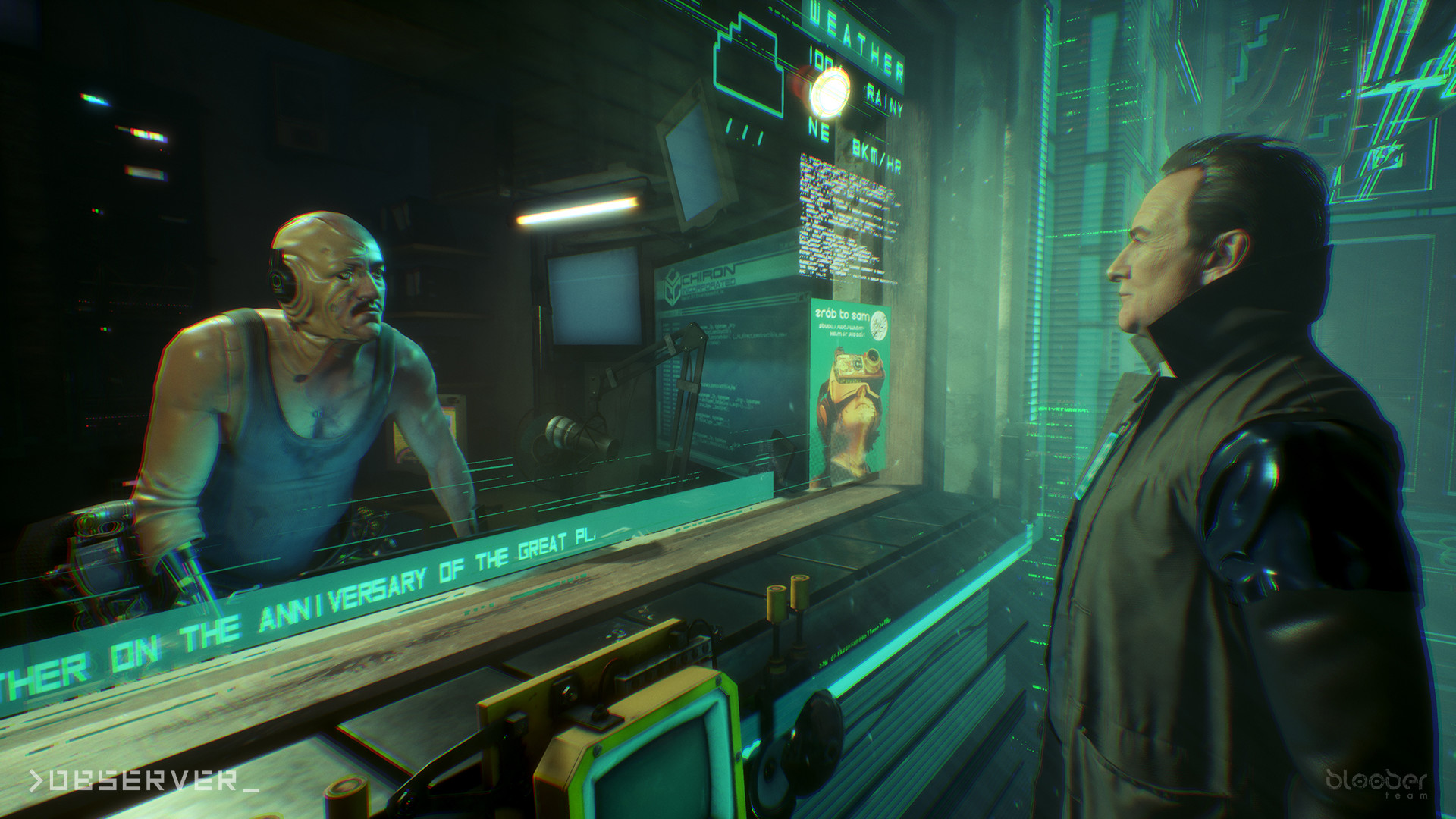
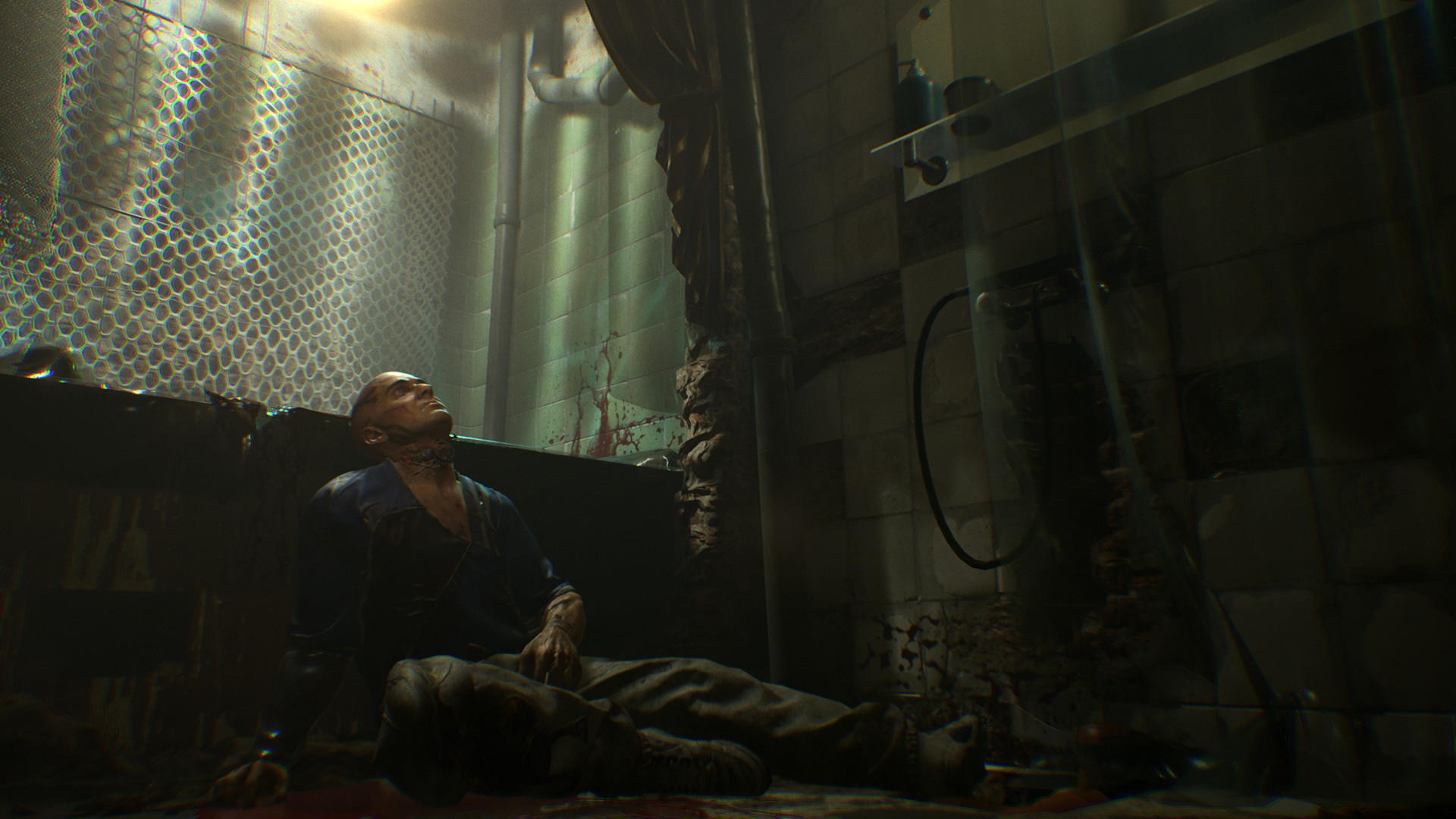
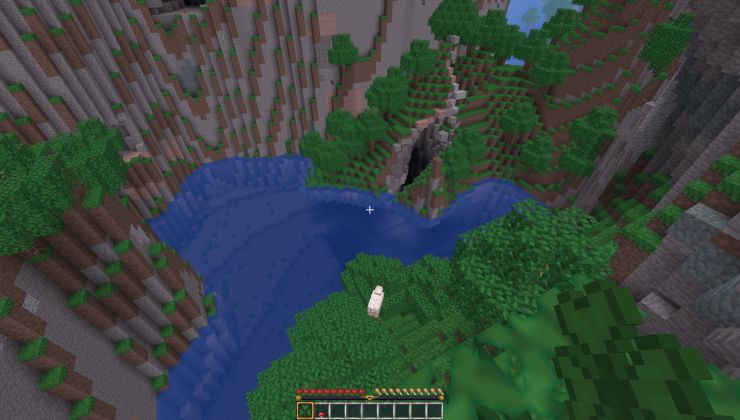
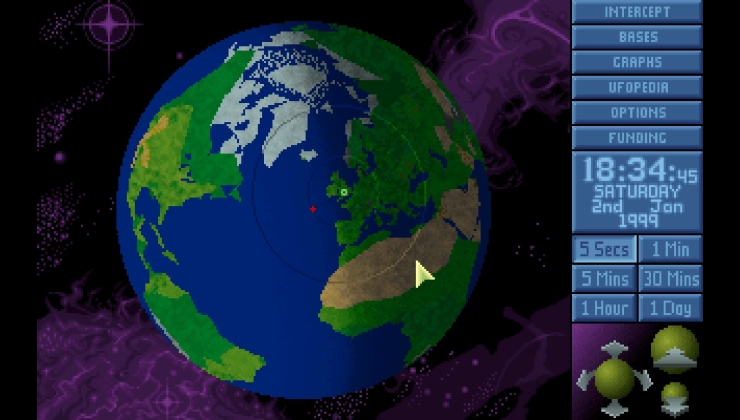
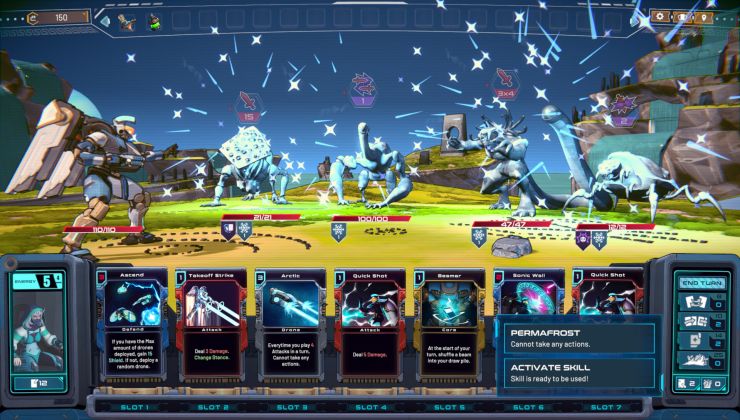
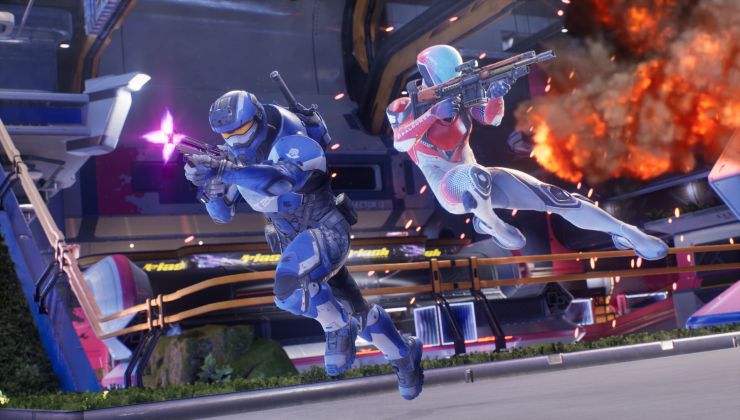


 How to setup OpenMW for modern Morrowind on Linux / SteamOS and Steam Deck
How to setup OpenMW for modern Morrowind on Linux / SteamOS and Steam Deck How to install Hollow Knight: Silksong mods on Linux, SteamOS and Steam Deck
How to install Hollow Knight: Silksong mods on Linux, SteamOS and Steam Deck